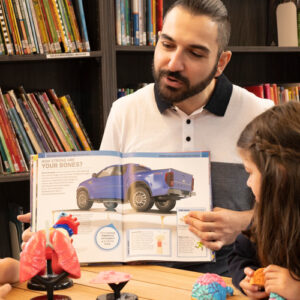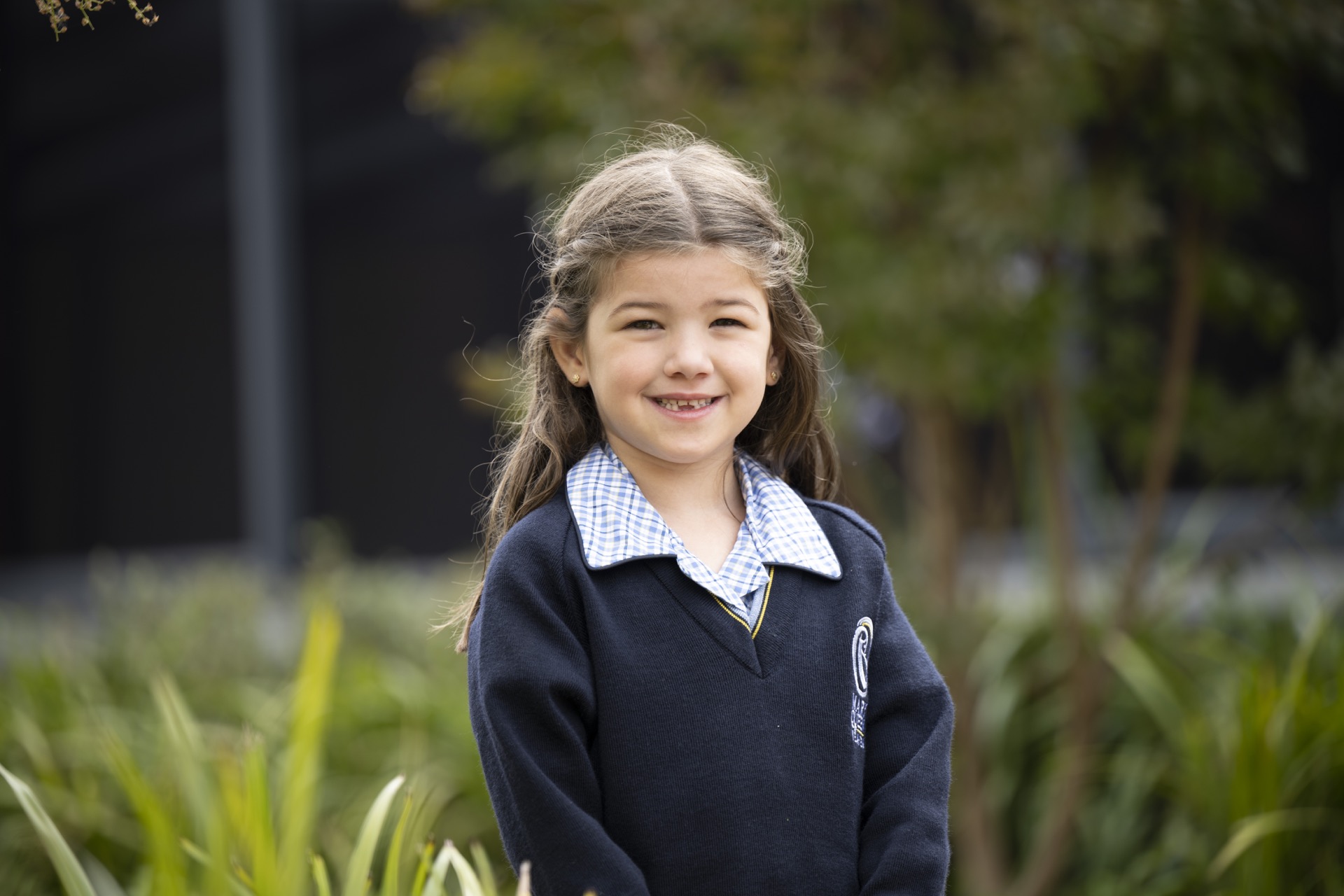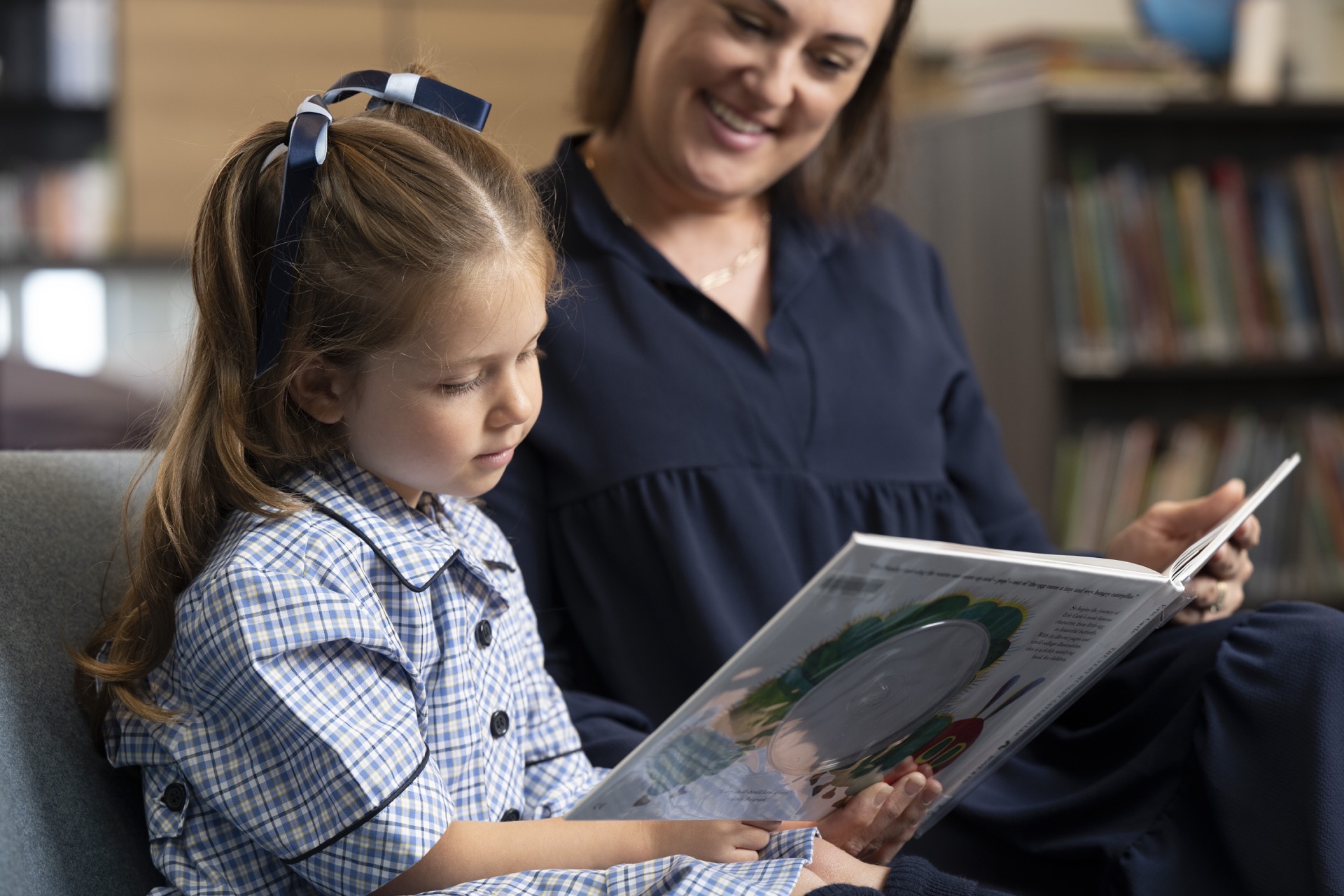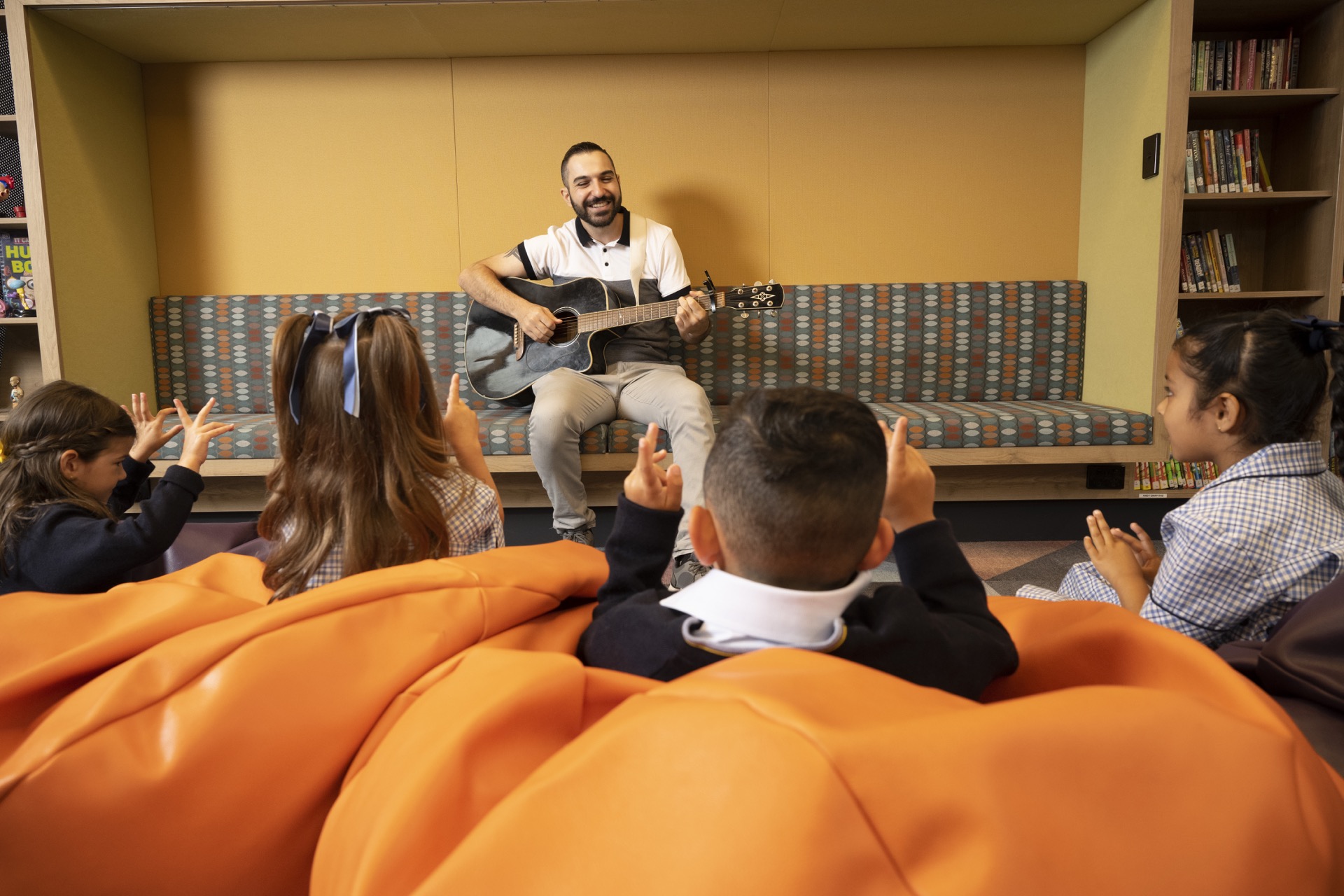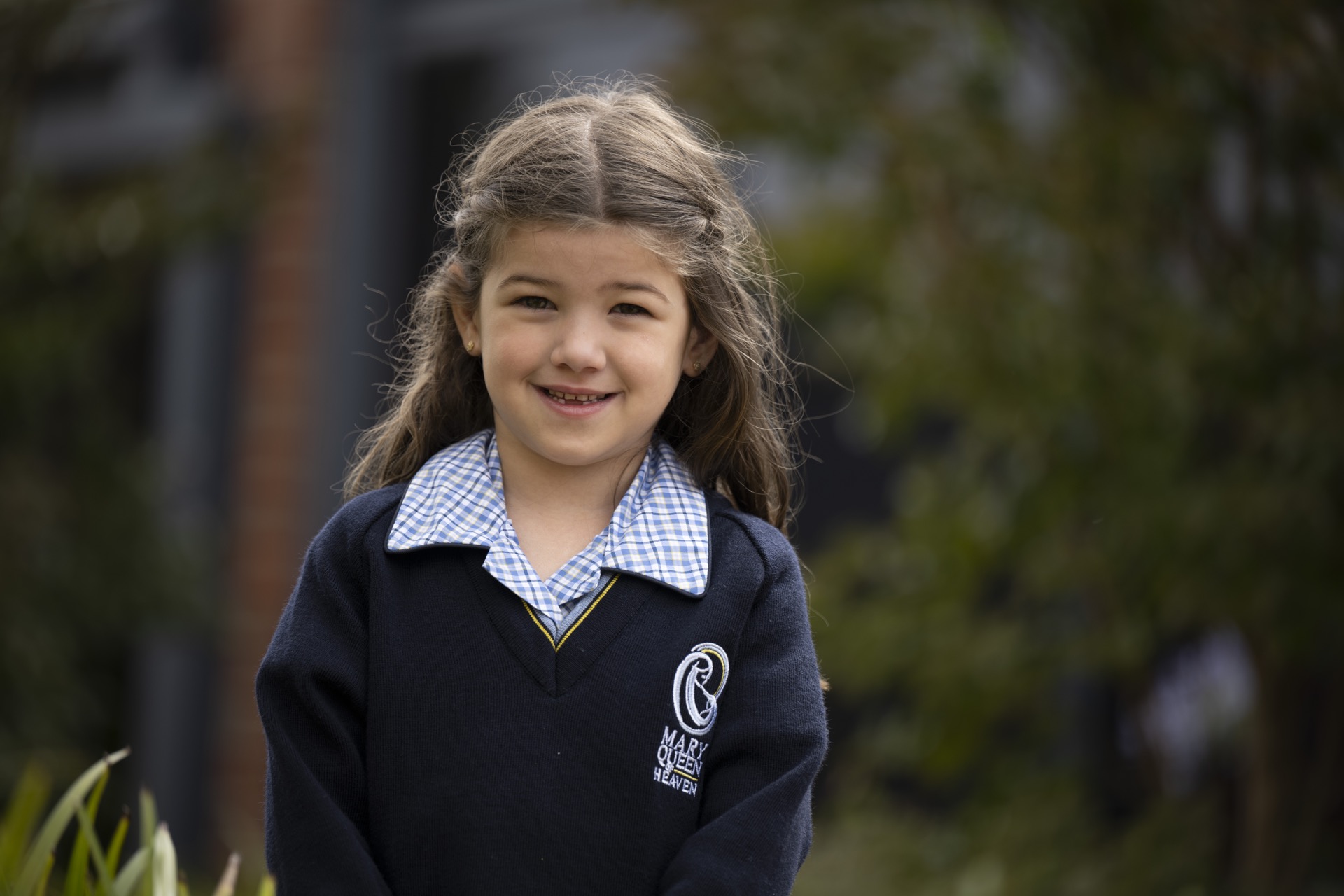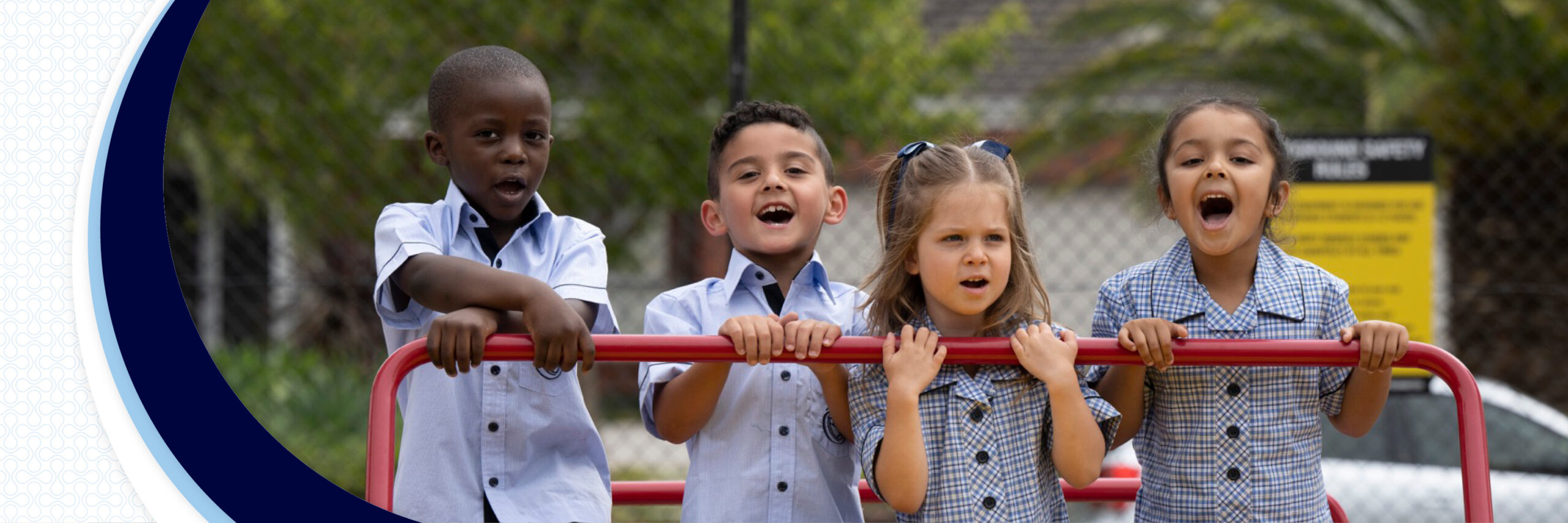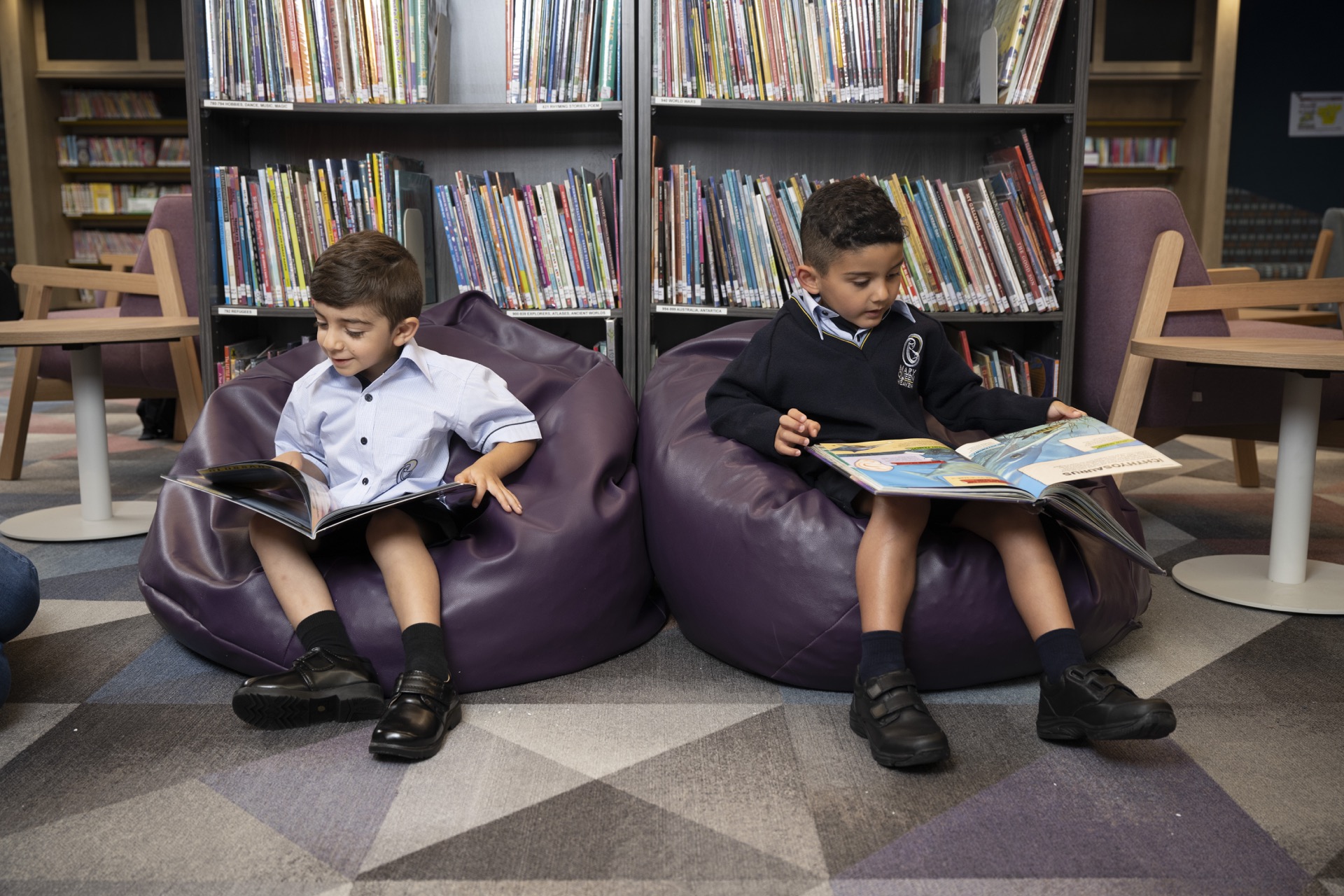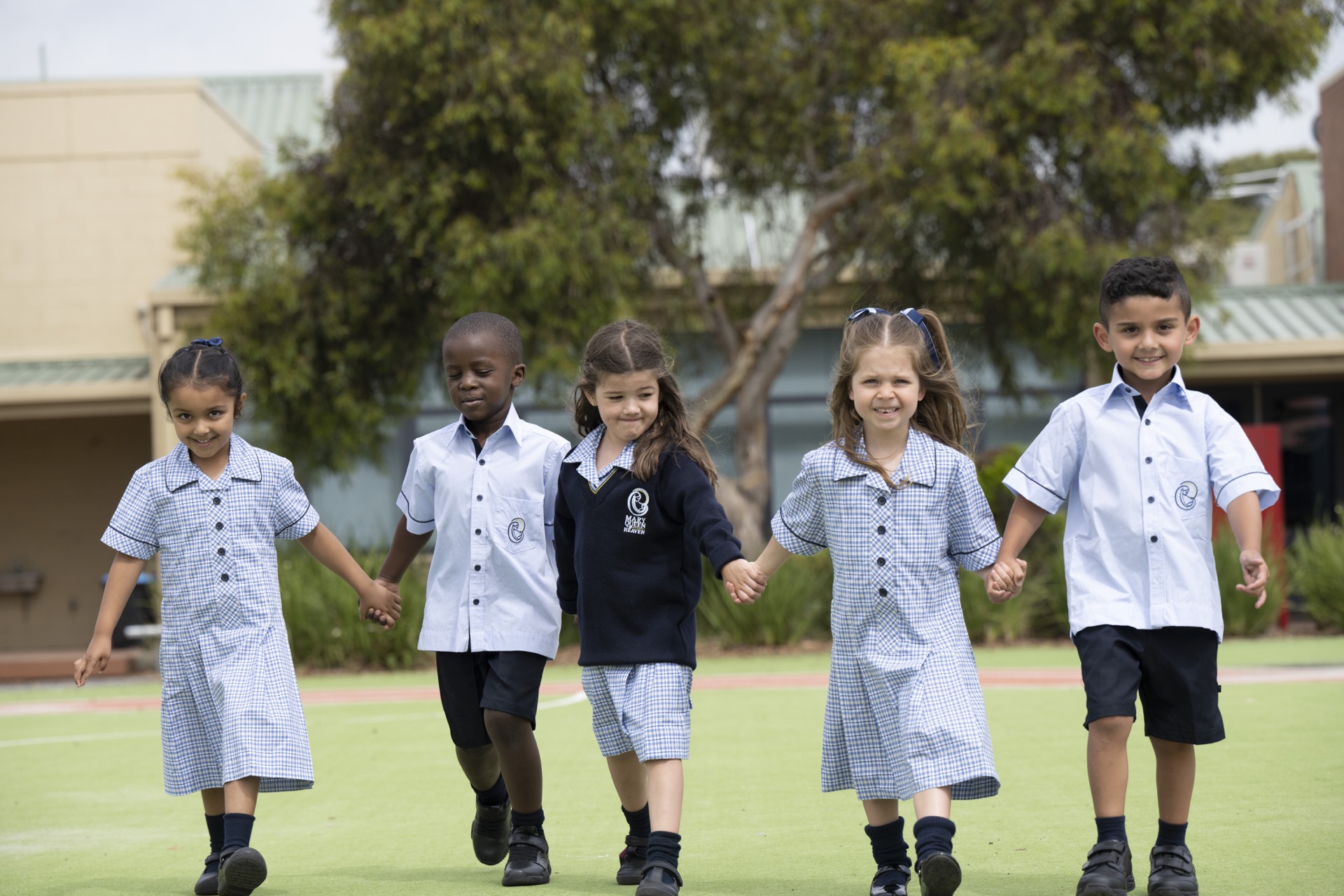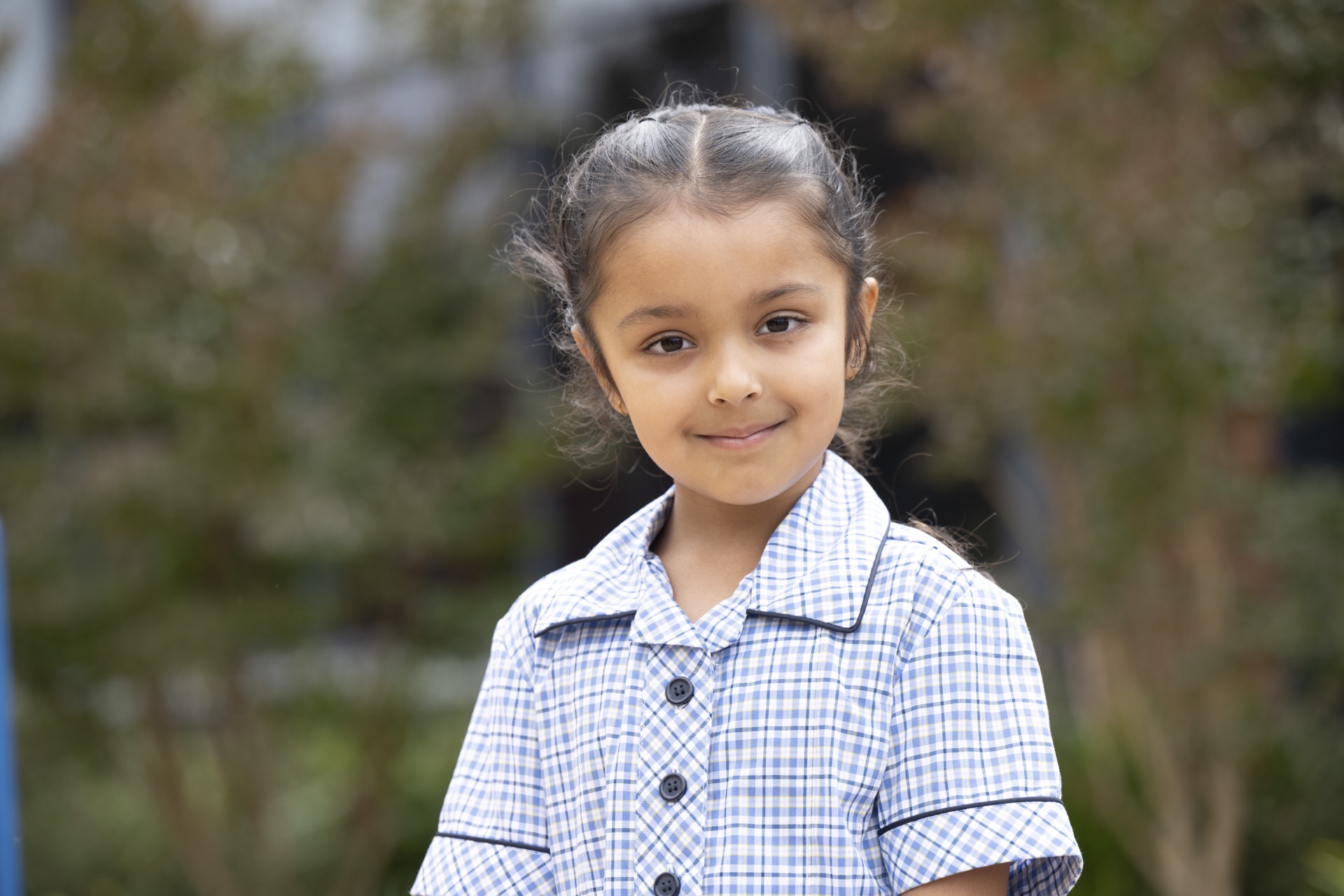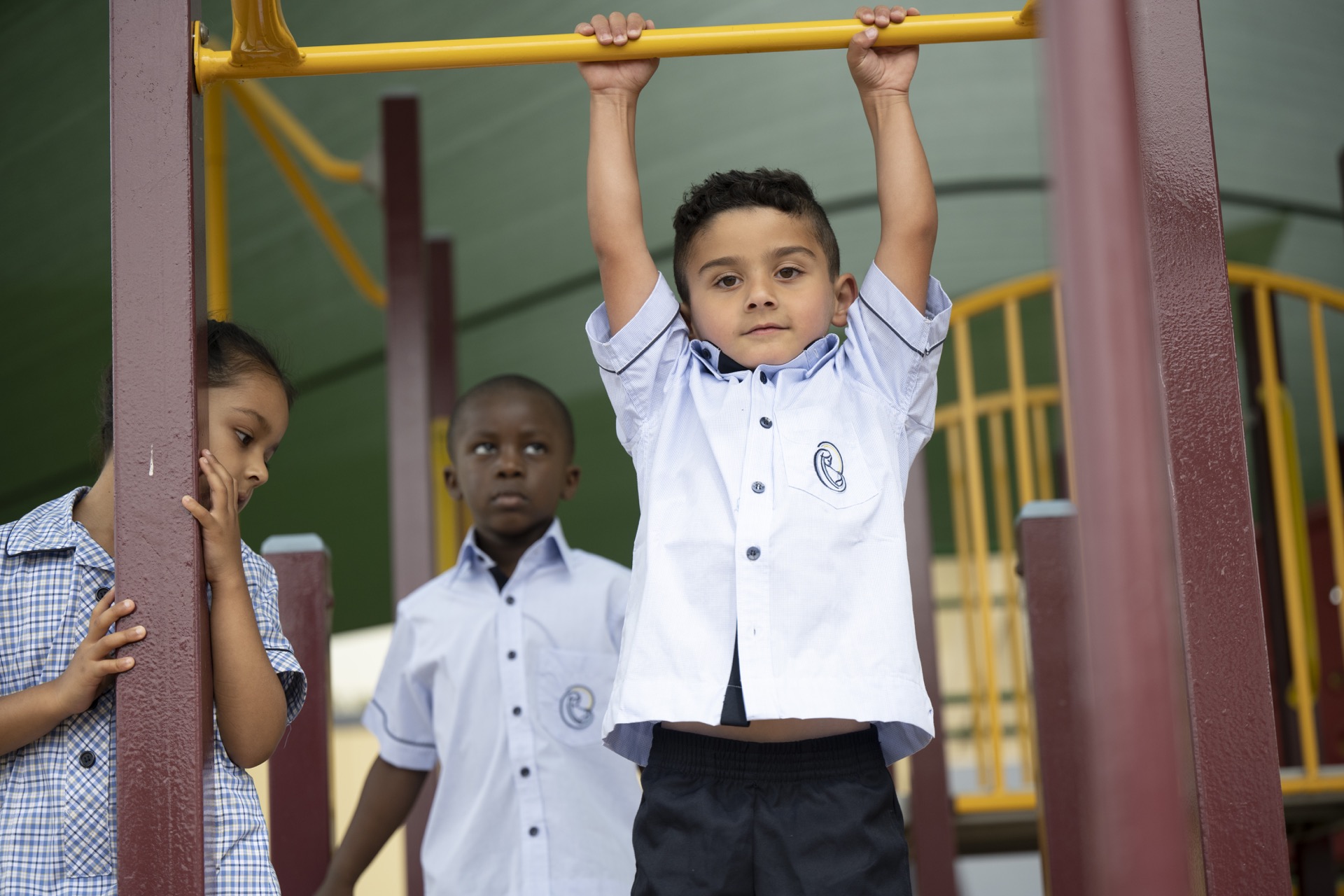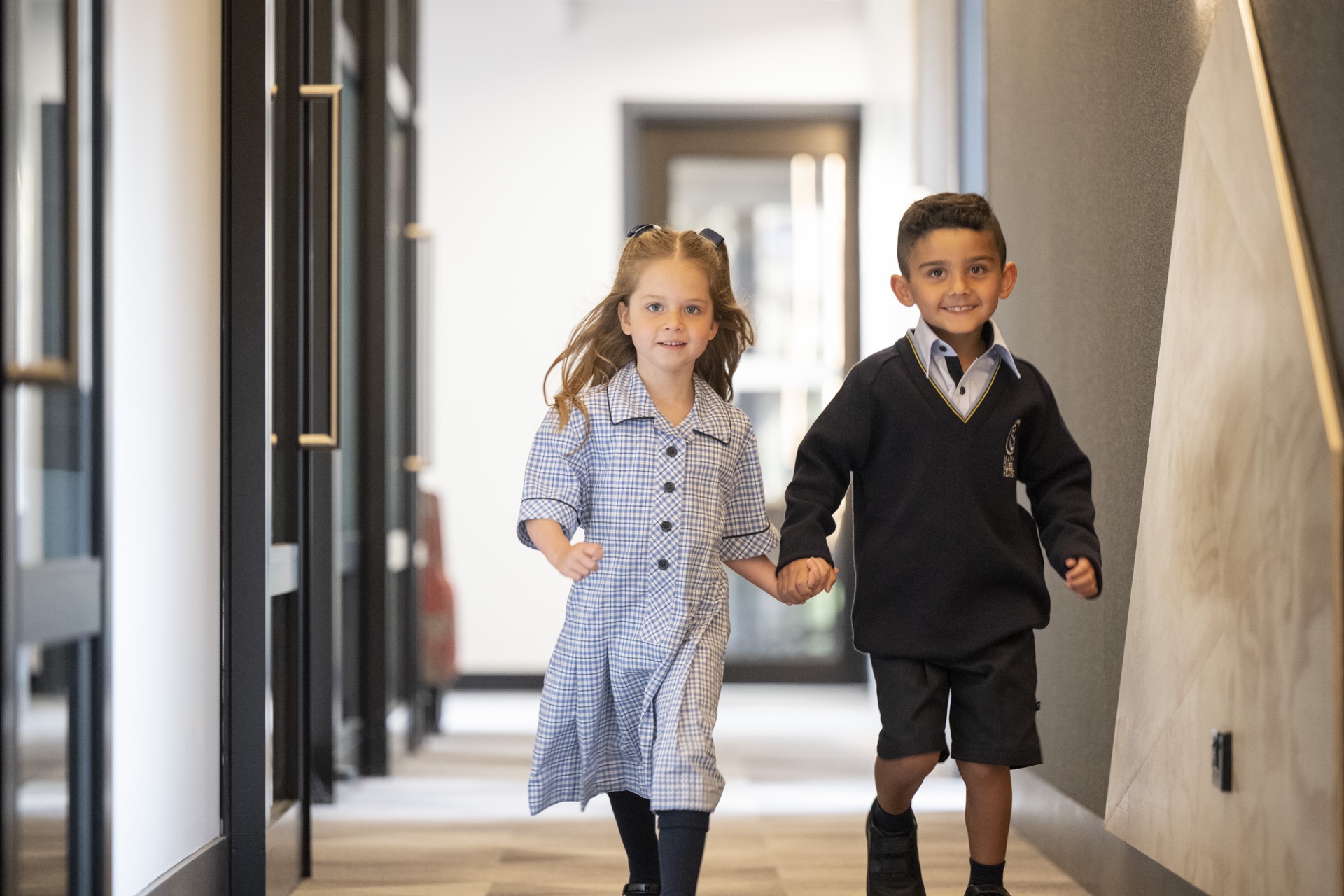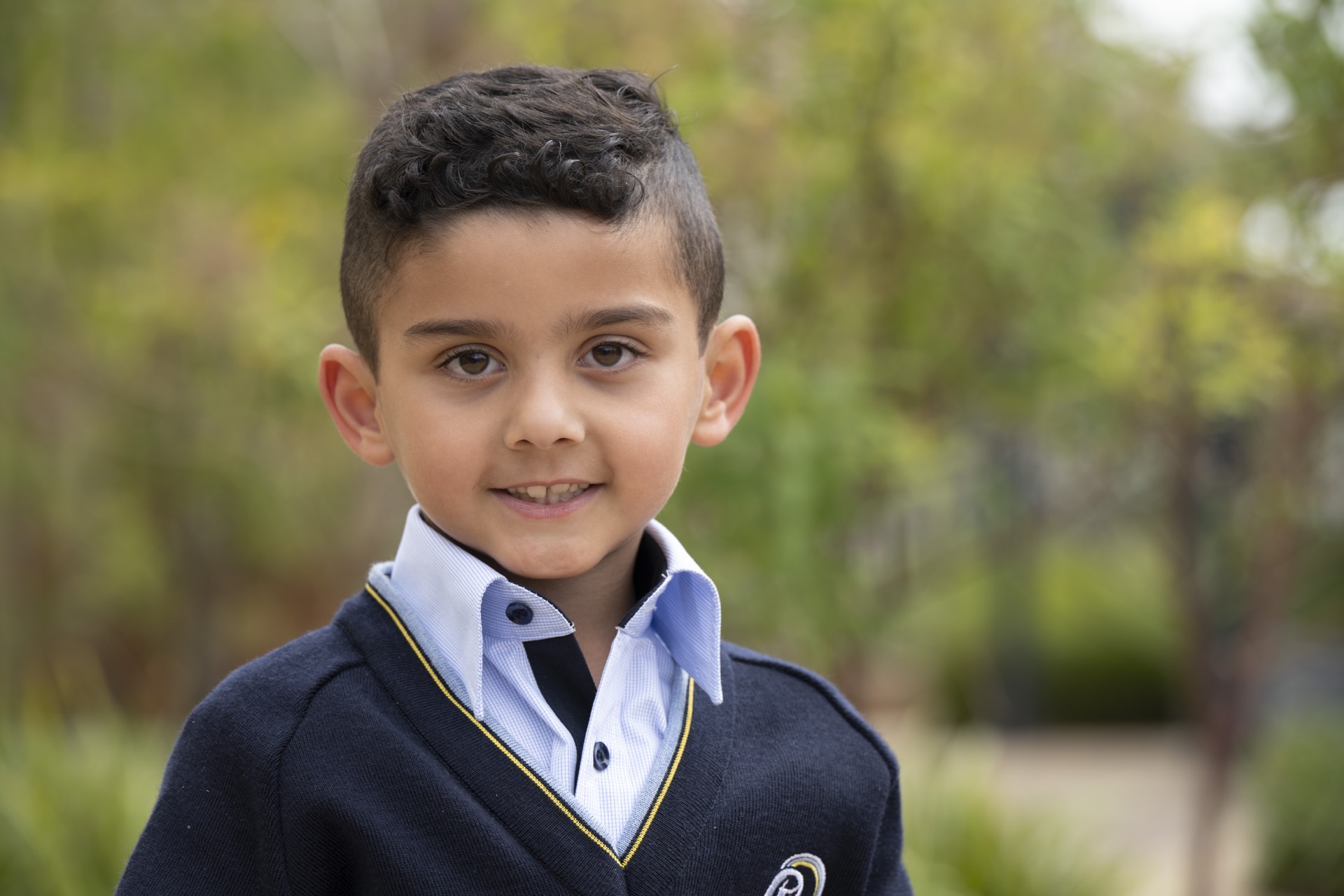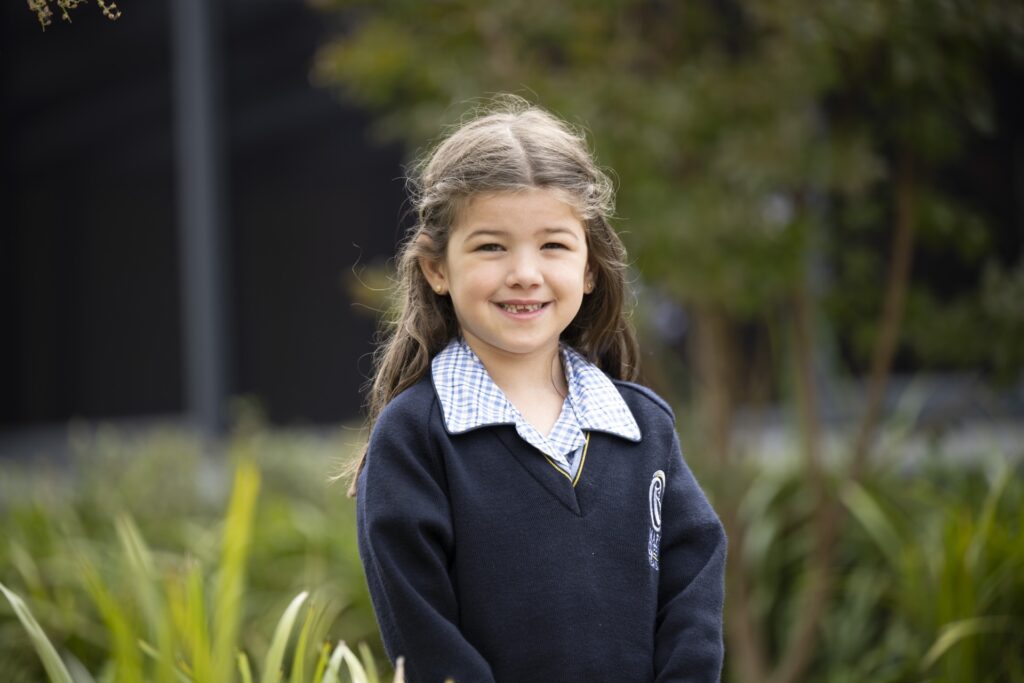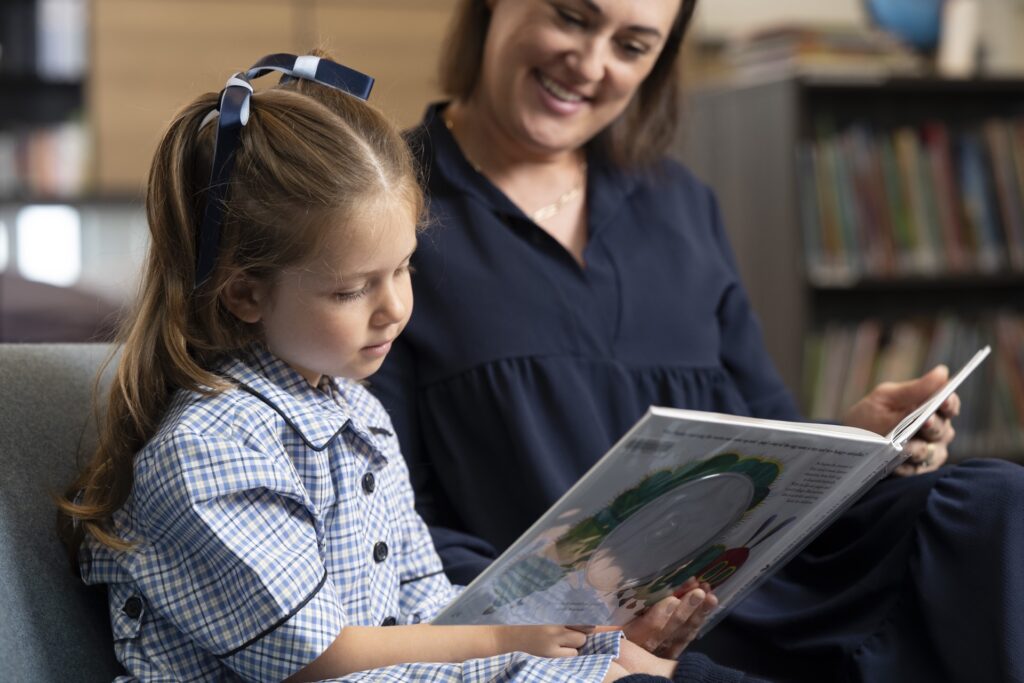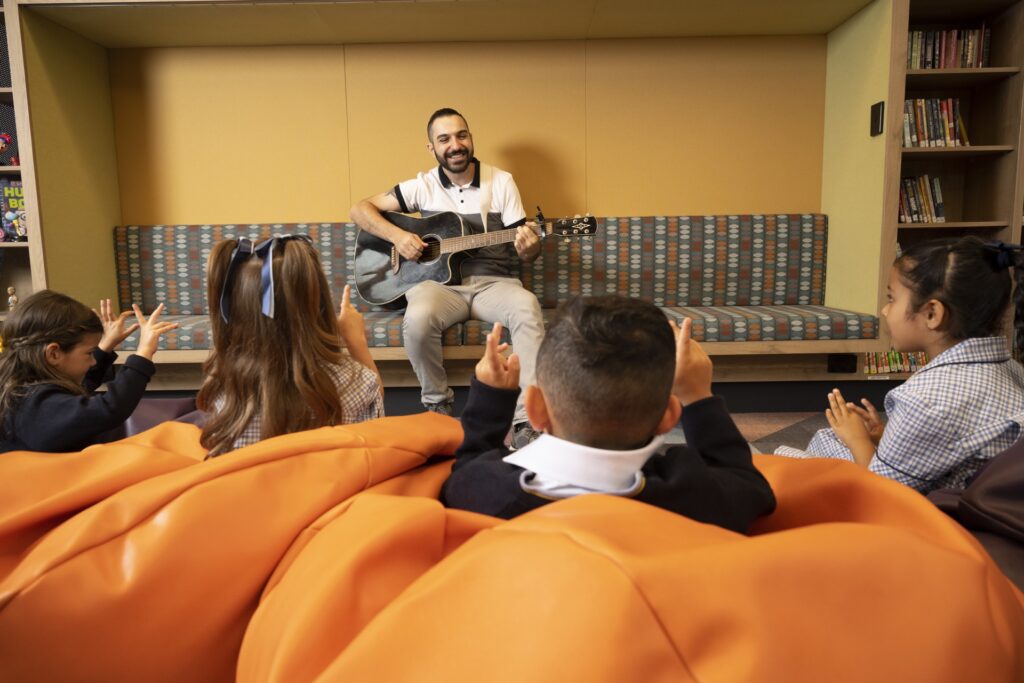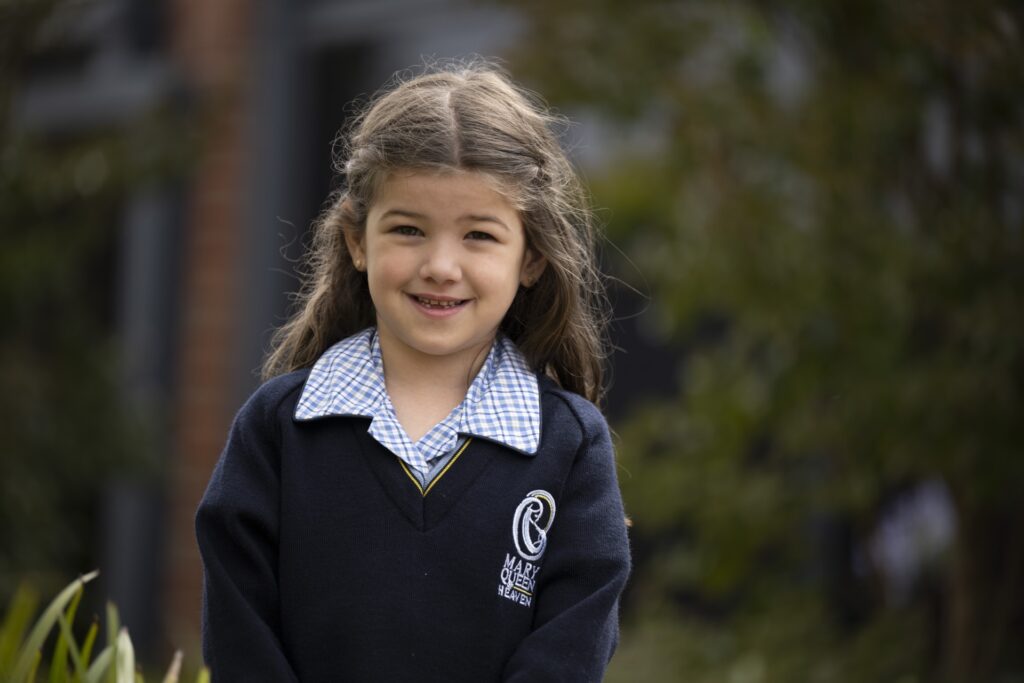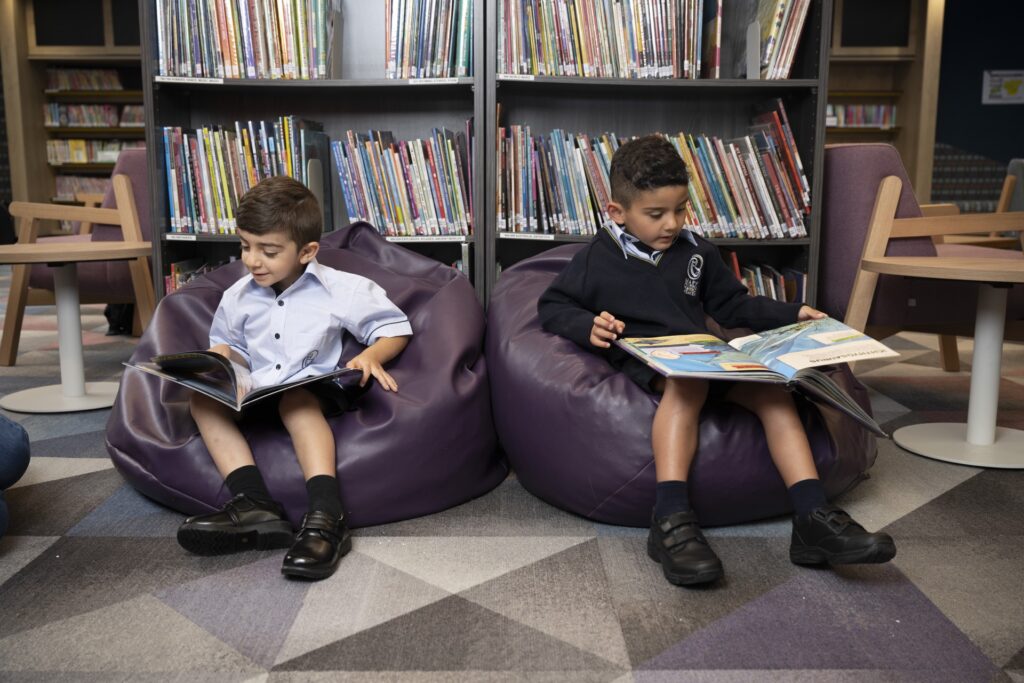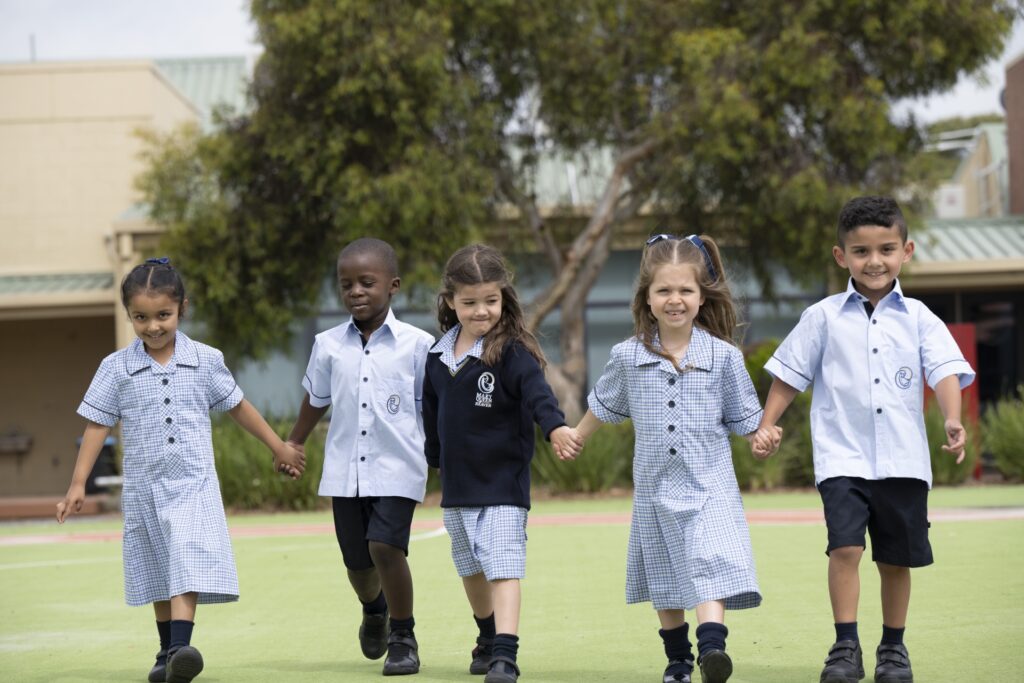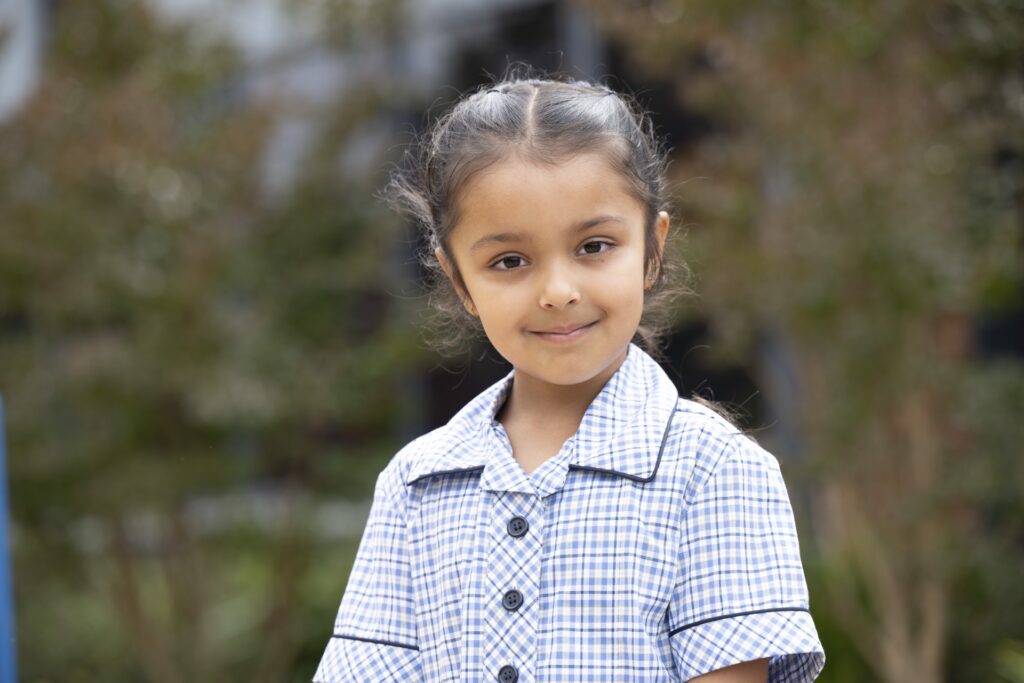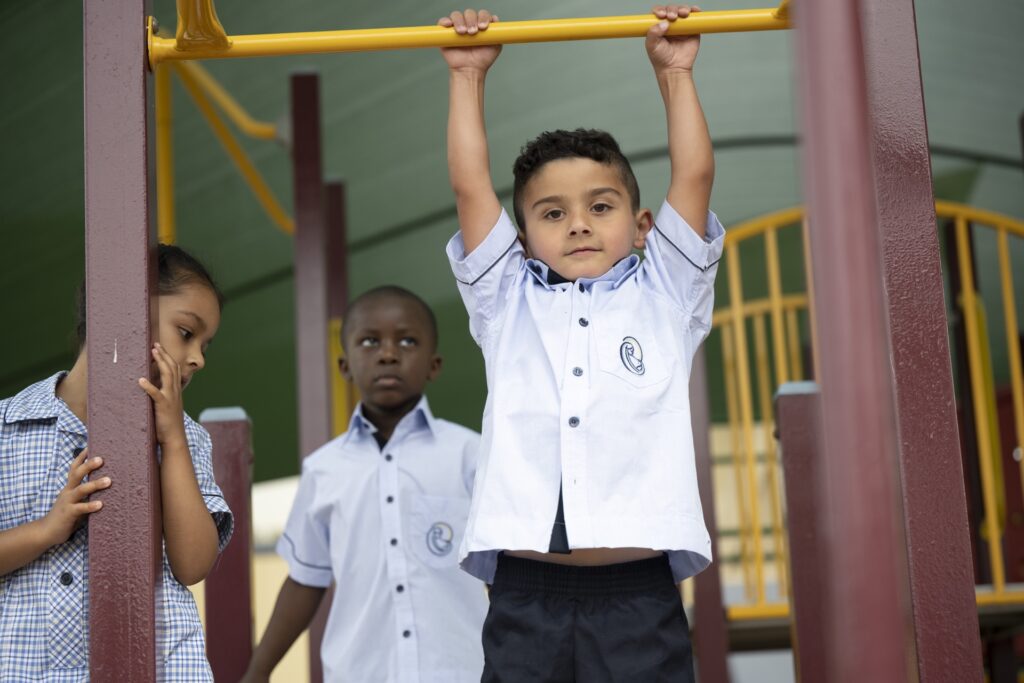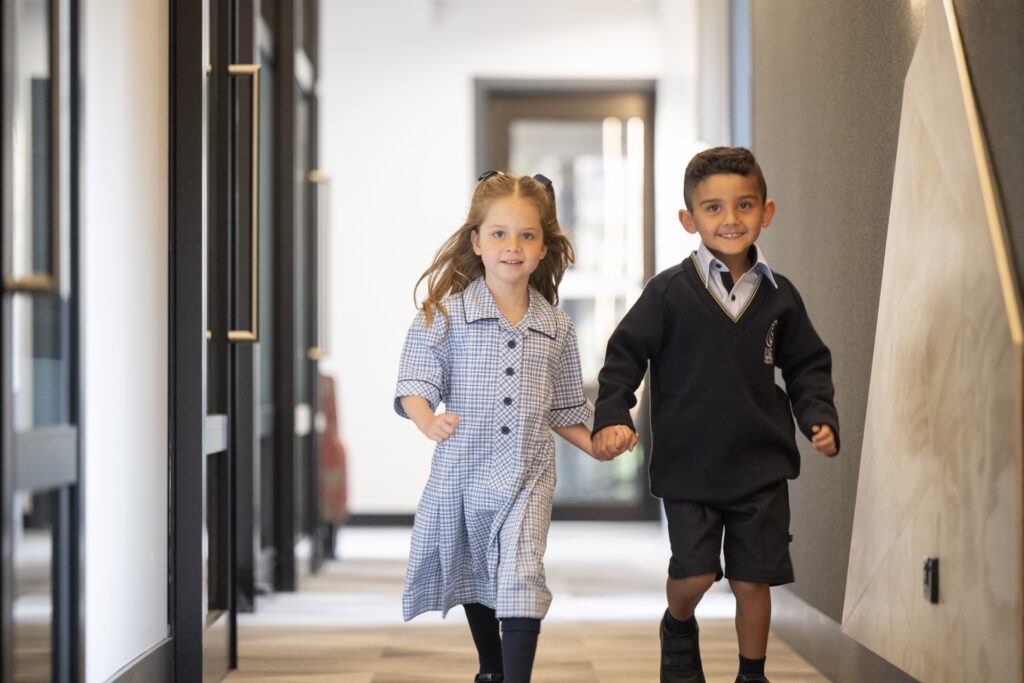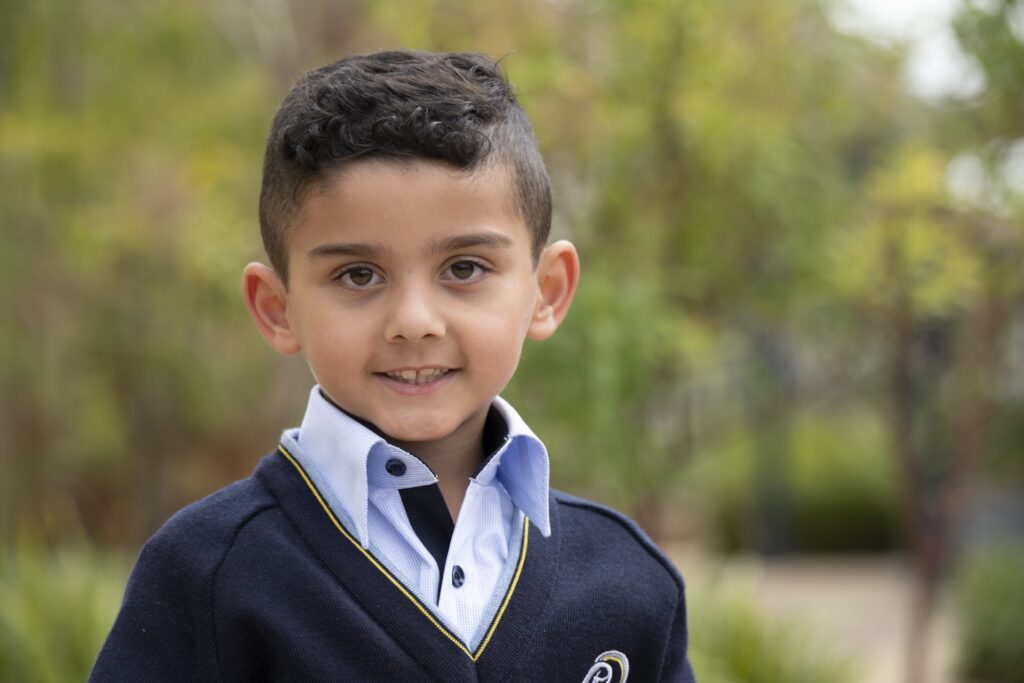Dear families,
We are now into our third week of term 3. We hope that the term 2 school holiday break was a restful and relaxing one for you all. It has been so lovely to see all of the children return to school with such enthusiasm and love for learning.
We are now very much settled into the hum of term 3. The children are very much enjoying the challenge and diversity of the explicit instruction embedded into our key learning areas of Literacy, Numeracy and Inquiry.
This week we celebrate and call to mind Australia’s First Saint, Mary of The Cross Mackillop.

Mary MacKillop was Australia’s first saint and a truly inspiring woman. She was born in 1842 and spent her life helping others, especially poor and disadvantaged children. Mary believed that every child deserved an education, no matter where they lived or how much money their family had.
With her strong faith and determination, she started the Sisters of Saint Joseph and opened many schools across Australia. Mary faced many challenges, but she never gave up. She trusted in God and always worked with kindness, love, and courage.
Mary MacKillop’s famous words, “Never see a need without doing something about it,” remind us to be people of action—helping others and living out our faith every day.
We celebrate Saint Mary MacKillop as a role model of compassion, resilience, and hope.
God of compassion, God of all people, we praise you for your servant, Mary MacKillop, who gave her life to serve you in the poor and oppressed.
As she is honoured in our world, may we continue to learn to share her vision.
Help us to recognise, as she did, that the poor of our time will hear the gospel in the way we serve them. Be with us as we strive to follow her and carry out our mission of service and care.
Amen
MACSISS
In the coming weeks you will be invited to complete a MACSISS survey. This survey provides us with important feedback from our families and helps us set goals for future improvement. Our year 4,5 and 6 students will complete the survey as will our staff. We strongly encourage all families to complete the survey. Once you have completed the survey, bring evidence into the office and we will enter you into a draw to win a $200 Coles gift voucher. 
A morning tea session will be offered to all families where we can support you with a device and how to navigate the survey.
SWIMMING

- The Big Picture
Australia loves water—with 34,000 km of coastline, swimming is the top physical activity for kids aged 0–14 – but a concerning gap
remains in safety and skills.
- Despite being our most decorated Olympic sport, participation alone doesn’t guarantee safety – proficiency does.
- Drop-off & Drop-out
- Alarm bells ring when Royal Life Saving reported a drop-off in participation among 8 – 10 year-olds in swim programs.
- Shockingly, up to 40% of students enter secondary schools without meeting basic national swim benchmarks.
- Schools: Policies vs Practice
- Victoria’s updated Health & PE curriculum sets clear standards – but implementation varies widely.
- Many states require school swim hours, but no national tracking system exists to monitor reach or effectiveness.
- Real-World Barriers
The Swimming in Schools initiative allocates $92 million over 4 years to government and Catholic primary schools – but geography,
staffing, transport, and teacher replacements can limit uptake.
- “Dry” lessons and beach-based theory are cheaper, but practical water time is essential – both are critical for competency.
- Equity Matters
While 85% of families enroll when lessons are available, children from culturally and linguistically diverse (CALD) communities and
financially constrained household face disproportionate barriers.
- Barriers include cost, pool access, transport, and cultural awareness of swimming’s value.
- Diverse Delivery Models
Schools implement swimming in different formats: one-day intensive, weekly lessons, beach trips, or two-week daily blocks –
context-driven, but this diversity leads to inconsistent outcomes.
Victoria’s Water Safety Certificate stipulates that students leaving Year 6 should be able to swim 50 m continuously, yet lack of
consistent monitoring obscures real progress.
- What We Need Moving Forward
- Consistent data collection across all schools to track student progress.
- Standardised implementation of curriculum expectations.
- Continued investment to overcome logistical and staffing barriers.
- Focused intervention for underserved communities.
- Blended models combining practical water time and dry theoretical learning.
At Mary Queen of Heaven we STRONGLY encourage all families to enrol their children in swimming lessons, an absolute gift you can give your children, especially living in a country like Australia.
Each year, to meet our Water Safety obligations and to ensure our learners are educated in the area of water safety, we offer our children 2-3 sessions (Dry) onsite lessons with Life Saving Victoria. These sessions are planned in term one and have all been conducted this year.
This year we are also offering water based education for Prep- Year 6.
Prep – Altona Beach excursion run by Life Saving Victoria to build confidence around water, understand beach safety, and learn what to do in an emergency.
Year 1/2 – Water safety activities run by Life Saving Victoria at Altona Beach incorporating safety near water, what to do in an emergency, and enjoy games on the beach.
Year 3/4 – Splash Water Park to enjoy inflatable aqua park, waterslides, and take part in dedicated water safety activities, including rescue scenarios and discussions about staying safe in different aquatic environments.
Year 5/6 – Water safety built into Summer Camp Experience (Surfing/Paddle Boarding)
These water components are fully funded with no cost to parents.
Uniform
Last week we shared with families reminders about our school uniform. Below are some examples of our uniform being worn well. Please ensure your children are wearing the correct school uniform at all times. Reminder slips will be issued to children who are not in the correct school uniform as a means of communicating to you so that you can have the conversations with your child.





 Last Tuesday evening we welcomed our Prep 2026 families for their first Prep information session. It was so refreshing to see the new, eager and beautiful faces that will soon form part of our vibrant school community. It was an absolute pleasure to tell the story of MQH so far and speak of our close knit, supportive and kind community.
Last Tuesday evening we welcomed our Prep 2026 families for their first Prep information session. It was so refreshing to see the new, eager and beautiful faces that will soon form part of our vibrant school community. It was an absolute pleasure to tell the story of MQH so far and speak of our close knit, supportive and kind community.
Thank you for using the two school crossing safely and with care.
 With the new crossing now installed along Hillview Rd, it has been so wonderful to see our families using the crossing each morning and night. PLEASE only cross Hillview Rd at the crossing, it is safer for pedestrians and drivers. I am still working with HUME council to establish when flags will be installed and when the crossing will be manned. I will keep you updated with any further developments.
With the new crossing now installed along Hillview Rd, it has been so wonderful to see our families using the crossing each morning and night. PLEASE only cross Hillview Rd at the crossing, it is safer for pedestrians and drivers. I am still working with HUME council to establish when flags will be installed and when the crossing will be manned. I will keep you updated with any further developments.
Last term we held ‘Silly Hair Day’ as a fundraiser for ‘Make a Wish Foundation.’ Please see below the letter of appreciation:
On behalf of everyone at the Hungry Jack’s and Make-A-Wish Foundation, I want to extend our heartfelt
gratitude for your generous donation and the incredible support Mary Queen of Heaven School have shown once again this year.
Raising $260 for Make-A-Wish is no small feat—and doing it for the second year in a row speaks volumes about your dedication and compassion. Your ongoing efforts are helping bring hope, joy, and strength to children facing critical illnesses by making their heartfelt wishes come true.
It’s inspiring to see the strong connection you’ve helped build between Mary Queen of Heaven School and Make-A-Wish Foundation. Your commitment is not only making a real difference in the lives of sick kids but also setting an amazing example of community spirit and kindness.
Thank you for being such a valuable part of this mission. We truly appreciate your continued support and look forward to working together again to create even more smiles and unforgettable memories.














